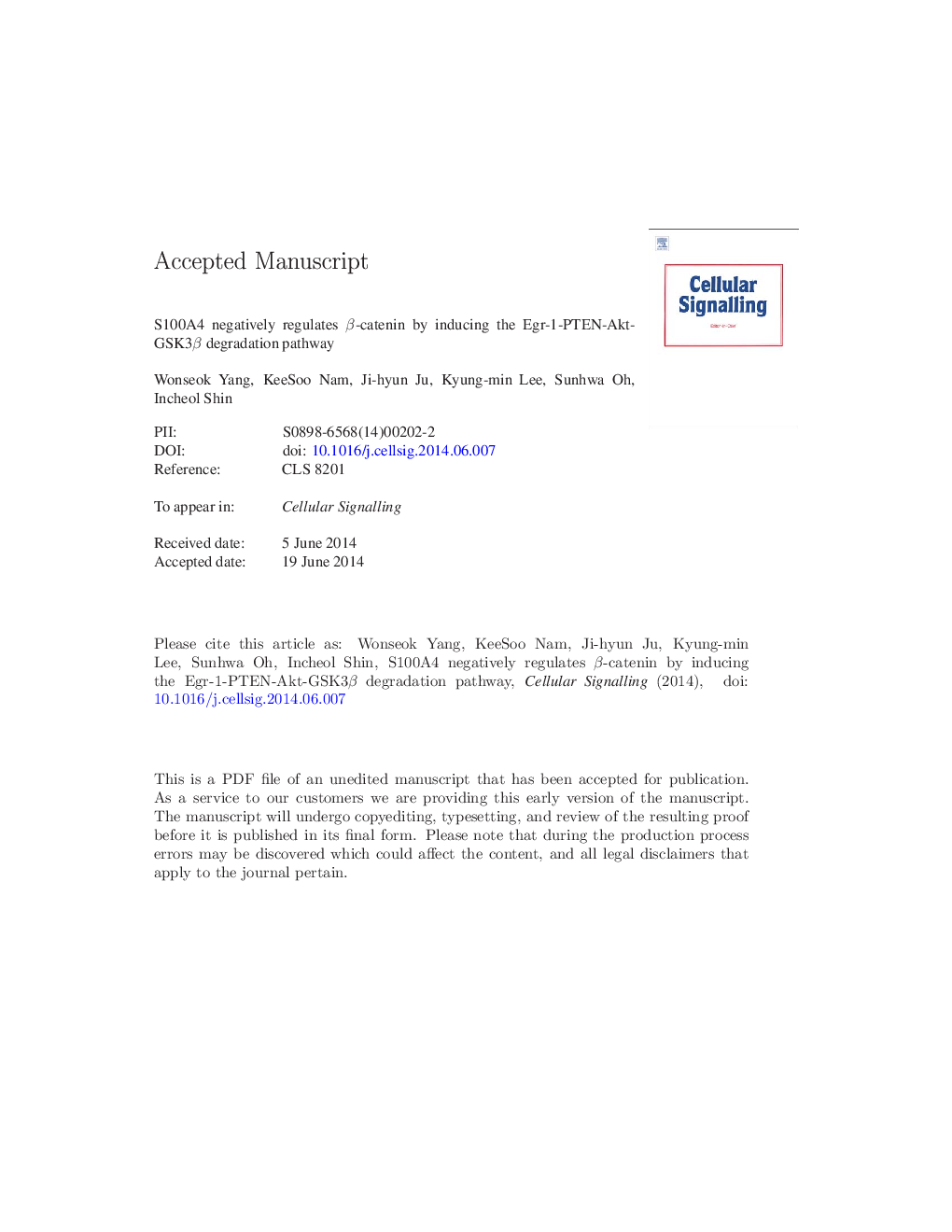| Article ID | Journal | Published Year | Pages | File Type |
|---|---|---|---|---|
| 10815201 | Cellular Signalling | 2014 | 28 Pages |
Abstract
S100A4, also known as the mts1 gene, has been reported as an invasive and metastatic marker for many types of cancers. S100A4 interacts with various target genes that affect tumor cell metastasis; however, little is known about cellular signaling pathways elicited by S100A4. In the current study, we demonstrate an inhibitory effect of S100A4 on β-catenin signaling in breast cancer cells. By overexpressing S100A4 in MCF-7, MDA-MB-231 and MDA-MB-453 breast cancer cells, we observed the down-regulation of β-catenin expression and β-catenin-dependent TCF/LEF transcriptional activities. The activity of GSK3β, which phosphorylates β-catenin and induces proteasomal degradation of β-catenin, was increased in S100A4-overexpressing cell lines. Blocking Glycogen Synthase Kinase (GSK3β) activity by lithium chloride or Dvl gene overexpression restored β-catenin expression. We also found that increased GSK3β activity was due to decrease in Akt activity resulting from Egr-1-induced phosphatase and tensin homolog (PTEN) expression. S100A4 induced Egr-1 nuclear localization by increasing the association between Egr-1 and importin-7 and this effect was reduced in S100A4 mutants that harbored a defect in nuclear localization signals. Collectively, we verify herein that S100A4 may act as a tumor suppressor in breast cancers by down-regulating the central signaling axis for tumor cell survival.
Keywords
Related Topics
Life Sciences
Biochemistry, Genetics and Molecular Biology
Biochemistry
Authors
Wonseok Yang, KeeSoo Nam, Ji-hyun Ju, Kyung-min Lee, Sunhwa Oh, Incheol Shin,
